Impact Stories
Empowering small-scale fishers to lead sustainable demersal fisheries in Indonesia
In coastal communities in Indonesia, small-scale demersal fishers are working with government agencies, NGOs, and industry partners to make fisheries more inclusive, sustainable, and climate resilient.
Indonesia’s small-scale demersal fisheries – targeting species like snapper, grouper, and octopus – are a vital source of food and income for coastal communities. But these fisheries are under growing pressure from climate change, habitat degradation, coastal development, and limited access to rights and resources.
In regions such as Sulawesi, coral reefs are declining due to pollution, overfishing, destructive fishing practices, and rising ocean temperatures. These reefs are essential nursery habitats and feeding grounds for demersal fish, and their loss threatens both ecosystems and livelihoods. Moreover, many small-scale demersal fishers face legal and economic marginalization, with limited access to secure tenure, government programs, or participation in policymaking.
SFP has been working with small-scale demersal fishers in Indonesia since 2019, helping them organize and participate in decision making that impacts their fisheries and livelihoods.
A timeline of progress in Indonesian demersal fisheries
A collective voice for demersal fishers
2022: SFP supports the establishment of the Indonesia Snapper-Grouper Fishers Network (Forkom Narasi), a network of small-scale fishers from South Sulawesi. The group begins with 268 members.
August 2022: SFP supports the DKP (district fisheries agency) of South Sulawesi province to organize a public consultation with snapper-grouper fishers in South Sulawesi. This is the first direct consultation with snapper-grouper fishers among a series of public consultations on the snapper-grouper harvest strategy in Fishery Management Area 713 (Makassar Strait). This is also the first time that small-scale snapper-grouper fishers have been directly involved in shaping policies that significantly impact their livelihoods. Ten fishers from five locations (Barrang Caddi, Langkai, Sarappo, Satangnga, and Galesong) are a part of the public consultation, actively participating in the discussion and providing input and comments on the strategy.
August 2023: Forkom Narasi is officially registered with the Indonesian Ministry of Law and Human Rights.
2024: Now representing 412 members from five key coastal areas in South Sulawesi (Barrang Caddi, Galesong, Langkai, Sarappo, and Satangnga), Forkom Narasi is formally acknowledged as a legal member of the government-led South Sulawesi Provincial Demersal Fishery Management Committee, through an official government decree.
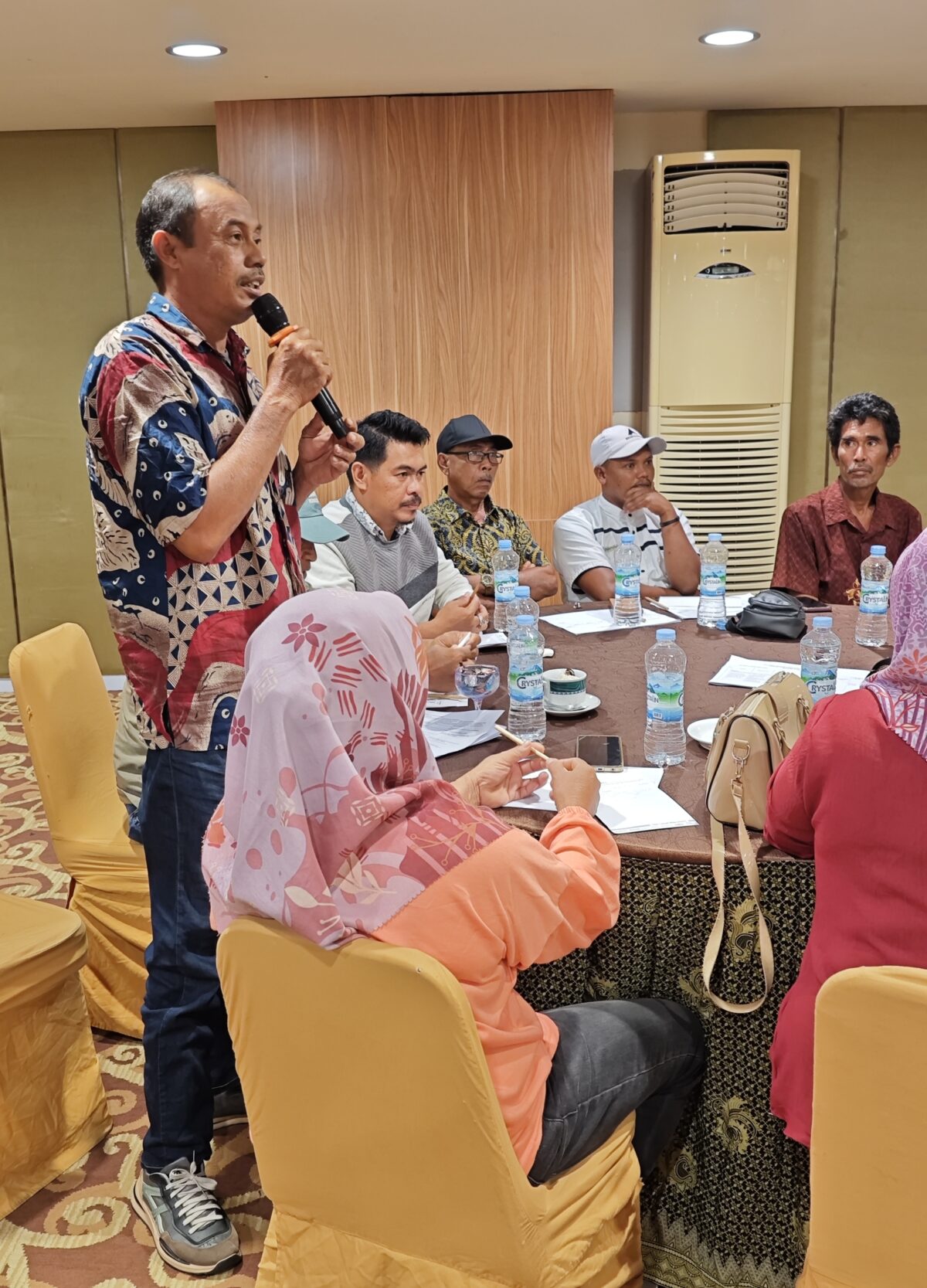
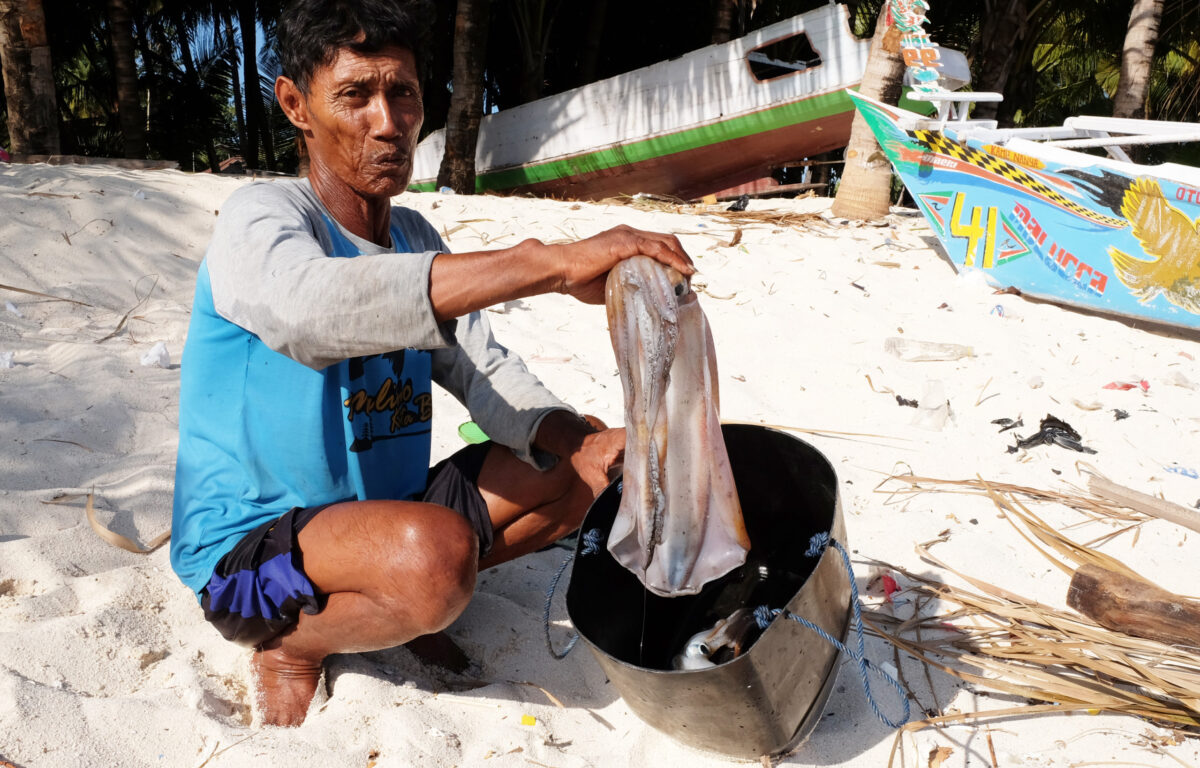
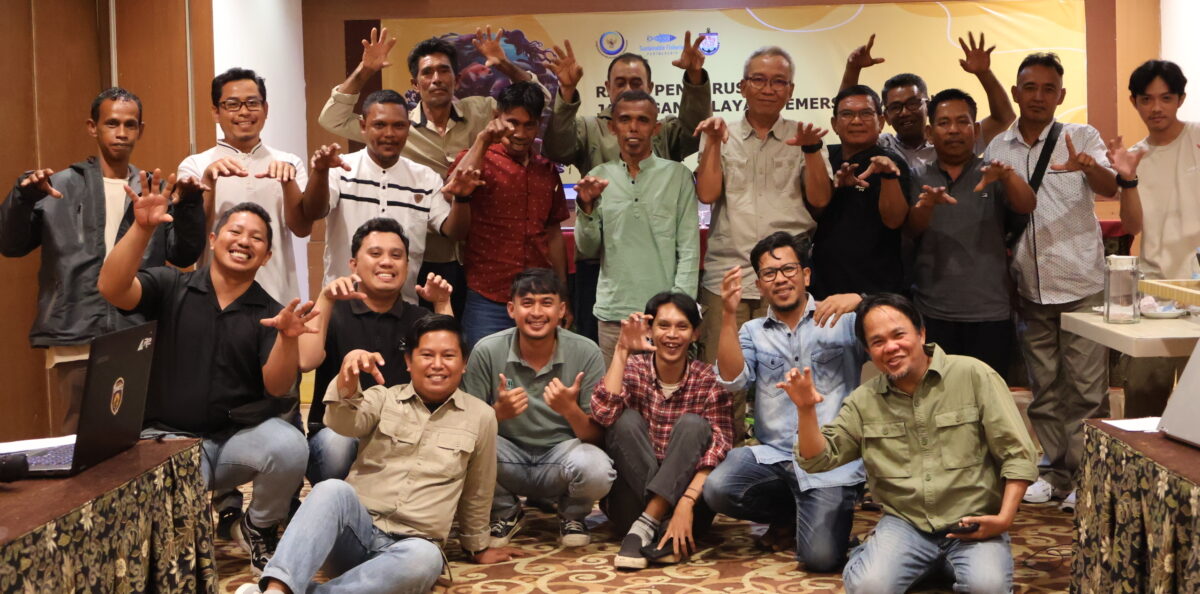
Creating platforms for participatory management
July 2024: SFP supports the launch of the South Sulawesi Provincial Demersal Fisheries Management Committee, a multi-stakeholder platform led by the South Sulawesi Provincial Fisheries Office. The committee brings together district fisheries agencies (DKP), all directorates from the provincial DKP office, industry representatives (the Indonesia Demersal Association/ADI), NGOs, and local fishers to collaboratively advance sustainable management of demersal fisheries in the province.
August 2024: SFP convenes a stakeholder consultation in Makassar, South Sulawesi, bringing together 26 octopus fishers from five Sulawesi provinces to review the draft National Octopus Fisheries Management Plan (RPP) – the first time that fishers are formally engaged in shaping a national fisheries management plan. Their input, particularly on the action plan, is incorporated into the revised draft, marking a significant milestone in Indonesian fisheries governance and signaling a shift toward more inclusive, participatory management.
Expanding the scope of the Forum
2024: Recognizing that many of its members also catch octopus and other demersal species alongside snapper and grouper, Forkom Narasi begins exploring the expansion of its scope to include a broader group of demersal fishers and a wider geographic area. This would enable the network to better represent the full range of its members’ fishing practices and further strengthen its role in promoting inclusive and sustainable fisheries management.
August 2024: SFP convenes a landmark meeting in Makassar, bringing together 26 demersal fishers from 10 districts across five provinces – South Sulawesi, North Sulawesi, Gorontalo, Central Sulawesi, and Southeast Sulawesi. Representing diverse fishing communities involved in snapper, grouper, and octopus fisheries, the participants lay the groundwork for a unified national platform.
December 2024: The Indonesian National Demersal Fishers Network (Jaringan Nelayan Demersal Nusantara, or JNDN) is formally launched. The JNDN, an expansion of Forkom Narasi, ratifies bylaws and develops a strategic plan for 2025.
2025: The JNDN grows to 683 members. Led by 10 fisher champions, including two women, the Network serves as a strong, collective voice for policy advocacy and the co-management of Indonesia’s demersal fisheries.
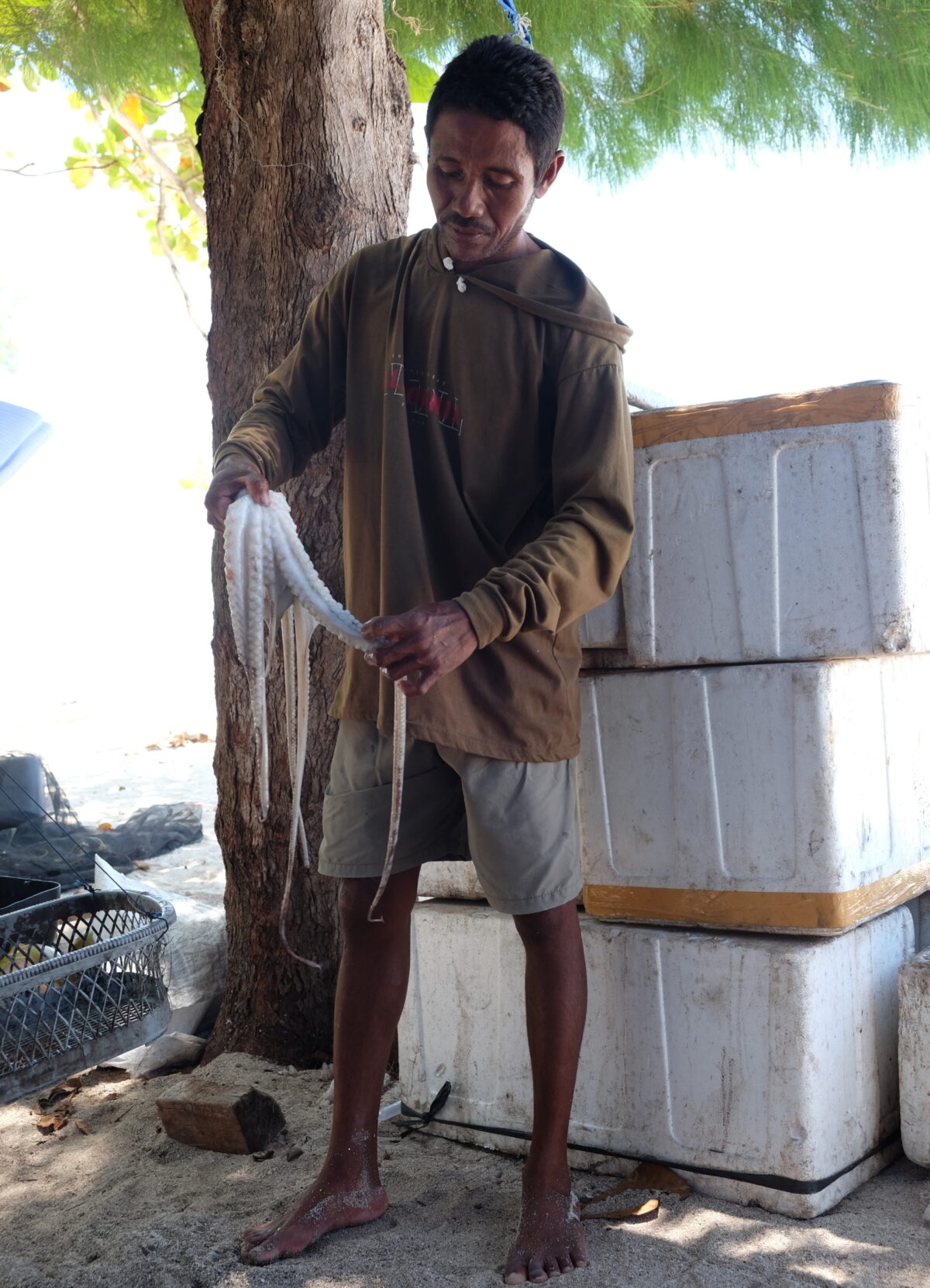
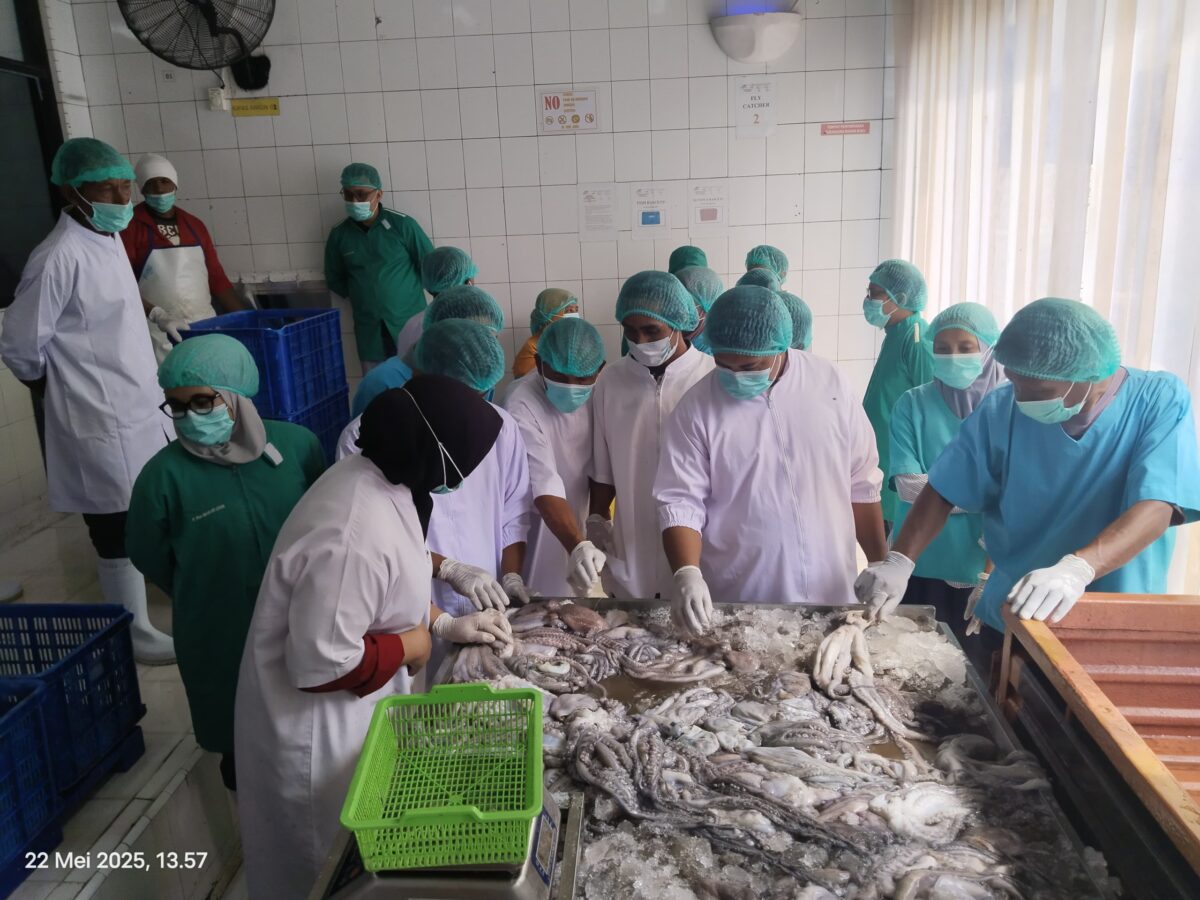
Supporting the government in data collection for fisheries management
Since 2023, octopus fishers in Selayar, Banggai Kepulauan, and Banggai Laut in South Sulawesi have been providing valuable catch data to the Research Institute for Marine Fisheries (BRPL). This data has supported national octopus stock assessments, guided seasonal closures, and informed the management of Locally Managed Marine Areas. By contributing this data, fishers have become integral to the adaptive management of their fisheries, playing a direct role in protecting their resources and supporting coral reef recovery efforts.
Securing Tenure Rights and Legal Recognition
SFP, in collaboration with local partners LINI and YKL Indonesia, has supported the legal recognition of demersal fishers in Central and South Sulawesi. As of mid-2025:
- 438 fishers have received KUSUKA (Fisher ID) cards
- 87 fishers vessels have been registered (PASS kecil).
SFP continues to assist with the registration process by working closely with fisheries extension officers to help fishers meet the requirements of the national system. Legal recognition is a critical step, ensuring fishers can operate within the law, access social protection programs, and participate in formal fisheries governance.
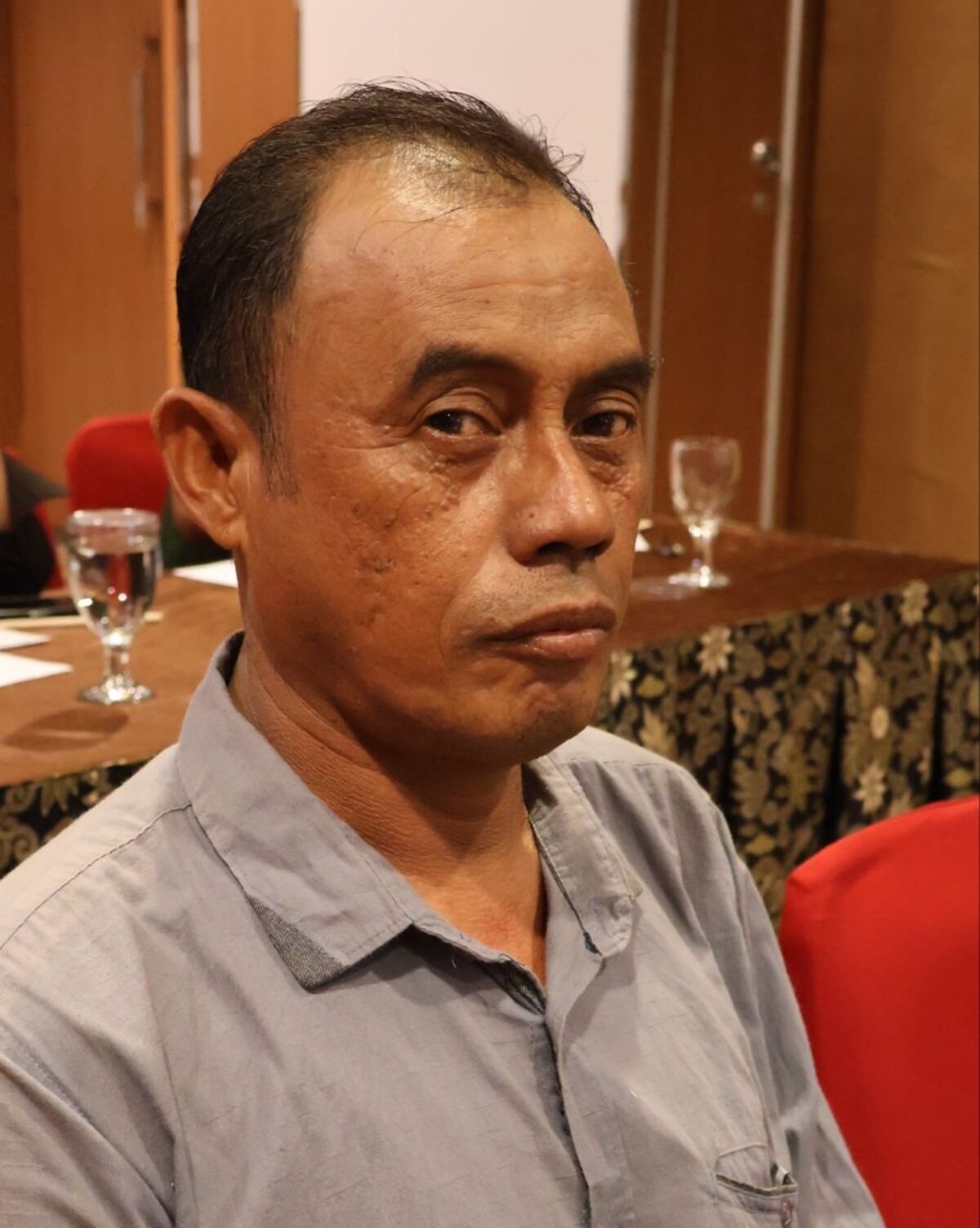
“I used to think our role was only to fish, to survive each day at sea. But through a long process and many challenges, we realized that our voices also matter. JNDN was born from difficult experiences – we were often excluded from policies that affected our own lives. Now, we no longer walk alone. We have come together, learned to speak up in forums, and taken part in managing our seas. I’m proud, because this is not just about fish, but about being recognized, and about a better future for our families and children.”
– Erwin RH, Head of Jaringan Nelayan Demersal Nusantara (the Indonesian National Demersal Fishers Network)
